One question that I am often asked is:
“Is it expensive to be vegan?”
Today, I’m going to open that can of worms and let you know the answer.
Being vegan can be cheap or expensive or right in the middle. It depends on a lot of things: your financial situation, your personal feelings, and your access to certain foods.
Am I personally spending more money now than when I was eating a diet filled with animal products?
Yes, I am. On purpose.
On purpose, you ask? Why on earth would I possibly want to spend more money on my grocery bill each month when I don’t have to?
Well, here’s the thing: once I switched to a vegan diet, I learned more and more not just about vegan food, but about food in general. I read about GMO’s, artificial colours and flavourings, preservatives, and all of that junk that is put into our food and beverages these days.
I wanted to learn everything I could about food. Where it came from, how it got here, and anything else I could find out.
What I learned was scary. Most everything I ate was either highly processed and/or loaded with chemicals. I switched to a vegan diet to be healthy, and more than half of the stuff I ate was not healthy at all.
So, I made a drastic change. I switched to a mostly whole foods diet and the majority of the fruits and veggies that I buy are organic. No one wants to eat chemicals for breakfast, right? I know I sure don’t. So, organics it is.
Sometimes, when money is tight, I will only buy the dirty dozen organic, and conventional for everything else, but that doesn’t happen often, because I make it a priority to have money set aside for high-quality produce.
Speaking of high-quality produce, I stopped shopping at low-end grocery stores, not because of the prices, but because of the quality. I wouldn’t say I shop at high-end grocery stores these days (not often, anyway!), but I do avoid stores that, from my own personal experience, sell mediocre (or less) produce.
Switching to a vegan diet made me change my overall eating habits. It wasn’t just eliminating the animal products, it was learning all about food and how food is made, that really changed the way I grocery shopped.
So yes, I spend more money on groceries now that I eat a vegan diet.
But does that mean you have to? Absolutely not! There are many ways you can save money on a vegan diet.
Here are 7 of my tips:
1. Shop at farmer’s markets
Especially at the very end of the day, when the farmer’s a ready to close up shop. You won’t get the best selection, but you will certainly get the best price, because the farmer doesn’t want to have to lug all of that food back to the farm. Ask for a discount, and you’ll likely get one.
2. Only buy the sale items
Regardless of where you shop, all stores have a sales cycle, and they will always have items on sale when you are shopping. Take advantage of those sales and add them to your menu plan. Try to avoid purchasing items that aren’t on sale. They just might be on sale next week!
3. Stock up
Stocking up on produce when it’s on sale is a great way to save money. For example, if berries are on sale super cheap, buy enough to last you a few months (if you can afford to do so), and stash them in the freezer. The same goes for other fruit, and for vegetables.
You should do this with other produce as well, such as beans, rice, quinoa, flour, and other pantry staples.
4. Look for “bad” produce
Many grocery stores have a shelf or cart where they put produce that no one will buy because it looks ugly. For example, spotty bananas are almost always available (people don’t know that spotty bananas are the most perfect!), peppers that are a bit soft, apples that have a small bruise or two. Buy these items and either eat them right away or store them in the freezer for great savings!
5. Buy the dirty dozen
If you can’t afford to buy all organics, try to at least buy the “dirty dozen” organic, and the rest conventional.
The dirty dozen are 12 produce items that have the highest amount of pesticide residues:
- Apples
- Strawberries
- Grapes
- Celery
- Peaches & Nectarines (Imported Nectarines)
- Spinach
- Sweet Bell Peppers & Hot Peppers
- Cucumber
- Snap Peas – Imported
- Cherry Tomatoes
- Potatoes
- Kale & Collard Greens
6. Shop in season
This goes hand in hand with only buying things that are on sale, because the items on sale are likely the items that are in season.
When you only buy produce that is in season, it’s not only cheaper, but it tastes a thousand times better, too!
7. Plan your menus
Menu planning is essential if you want to save money on groceries – vegan or not. Plan your meals for an entire week, shop for groceries once, and you will save money, and also have a plan of attack for the week ahead. This will save you time, and the stress of “what’s for dinner” that many people experience each day.
I personally plan all of my meals – including breakfast, lunch, dinner, and snacks/desserts. You may find that too overwhelming. If that’s the case, start with just one meal. Dinner is the most stressful for most people, so I would start there. You can add in more meals later, if you are up for the challenge.
Don’t automatically assume that switching to a vegan diet is more expensive, because it doesn’t have to be. For me, it is, but like I said before, that is by choice. I pay more for better quality food, and I’m okay with that.
If you’re toying with the idea of going vegan, but are scared about the expense – don’t be! Start small and make gradual changes in your diet, and see where that takes you. You might be surprised just how inexpensive being vegan can be.
If you’re currently eating a vegan diet, do you find it to be more expensive than a diet full of animal-foods?
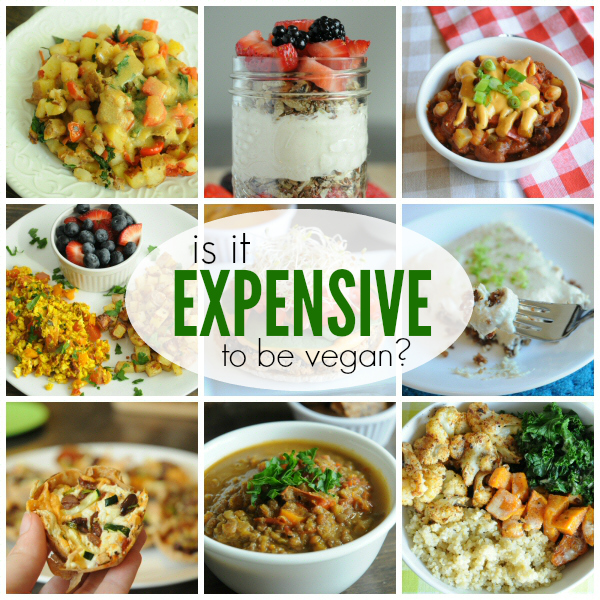
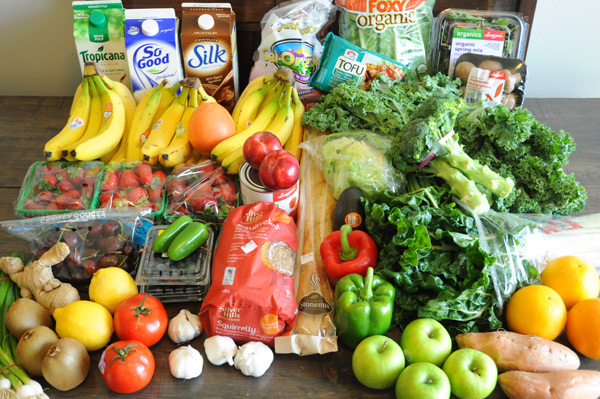
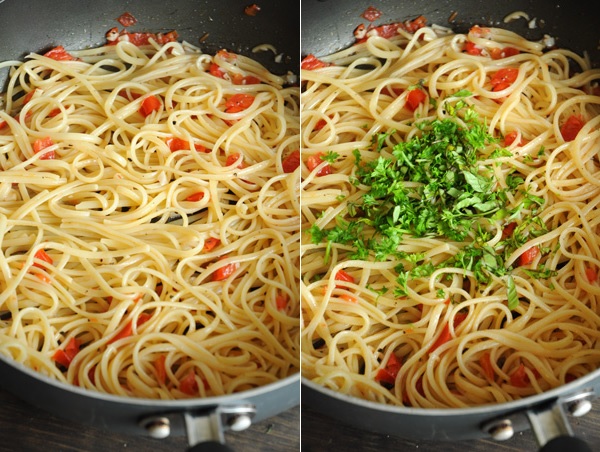
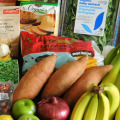
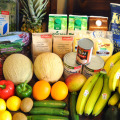

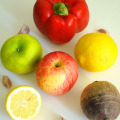
Leave a Reply